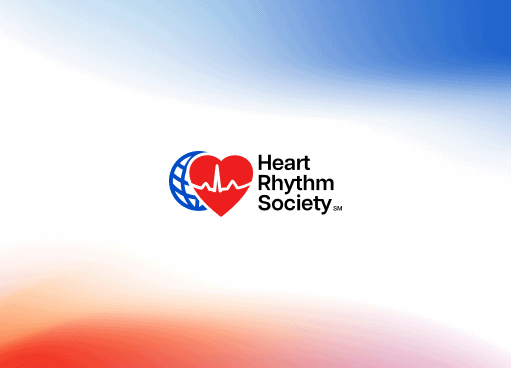SAN FRANCISCO, CA – Results from a new clinical trial found aggressive blood pressure (BP) control reduced the risk of left-ventricular conduction disease. This study is the first to provide causal evidence that cardiac conduction disease is preventable. Findings were presented today as a late-breaking clinical trial during Heart Rhythm 2022.
Conduction diseases are heart rhythm disorders that impact how electrical impulses travel through the heart. Left-ventricular conduction disease, which can appear as left bundle branch block (LBBB) or fascicular block, is a common disorder detected by routine EKG that can lead to heart failure, complete heart block and the need for a permanent pacemaker. Today, no strategies exist to help prevent the risk of left ventricular conduction disease. This trial sought to determine whether aggressive BP control could potentially serve as a preventative strategy and reduce patient risk for incident left ventricular conduction disease.
The study used the Systolic Blood Pressure Intervention Trial (SPRINT) and randomized 3,918 hypertensive patients to standard BP treatment (target systolic BP < 140 mm Hg) and 3,956 participants to intensive BP treatment (target systolic BP < 120 mm Hg). The mean age was 67.6 ± 9.2 years and patients were observed for an average 3.5 years. Researchers used serial 12- lead electrocardiograms to track the development of left ventricular conduction disease and new ventricular pacing, examining the incidence of right bundle branch as a negative control.
Among all of the participants, 203 developed left-ventricular conduction disease. Random assignment to intensive BP control was associated with a 26% lower risk of left-ventricular conduction disease (HR 0.74, 95% CI 0.56-0.98, P=0.038). Additionally, older age (HR 1.04, 95% CI 1.02-1.05, p=0.001), male sex (HR 2.31, 95% CI 1.63-3.32, p=0.001), and cardiovascular disease (HR 1.46, 95% CI 1.06-2.00, p=0.02) were associated with a heightened risk of developing LBBB or fascicular block. The statistically significant results persisted when incident ventricular pacing was included in the outcome. No relationship between randomization assignment and a negative control, right ventricular conduction disease, was observed (HR 0.95, 95% CI 0.71-1.27, p=0.75).
“Patient questions around how and why they were diagnosed with left ventricular conduction disease and the need to offer better answers inspired this study. We sought to uncover a prevention strategy for this common disorder,” said senior author, Gregory Marcus, MD, MAS, University of California, San Francisco. “Before our trial, earlier studies were strictly observational. We hope these results will drive even more research dedicated to identifying modifiable characteristics of conduction disease and studying interventions that could help reduce patient risk.”
The authors of this trial believe that future efforts to mitigate the development and progression of conduction disease could change guidelines around diagnosis and treatment of the condition as well as the clinical perception of the disease. They also call for additional studies to further understand how a reduction in conduction disease could impact the need for antihypertensive medications and other therapies.
Session Details:
“Late Breaking Clinical Trials: Updates and Registries: Effect Of Intensive Versus Standard Blood Pressure Treatment On Incident Left-Ventricular Conduction Disease” [Friday, April 29, 2022 at 10:30 am PT]
###
About the Heart Rhythm Society
The Heart Rhythm Society is the international leader in science, education, and advocacy for cardiac arrhythmia professionals and patients and is the primary information resource on heart rhythm disorders. Its mission is to improve the care of patients by promoting research, education, and optimal health care policies and standards. Incorporated in 1979 and based in Washington, D.C., it has a membership of more than 7,000 heart rhythm professionals in more than 90 countries around the world. For more information, visit www.HRSonline.org.
About Heart Rhythm 2022
The Heart Rhythm Society’s annual Heart Rhythm meeting convenes 5,500+ of the world’s finest clinicians, scientists, researchers, and innovators in the field of cardiac pacing and electrophysiology. More than 600 international experts in the field will serve as faculty for the 250+ educational sessions, forums, symposia, and ceremonies, while 100+ exhibitors will showcase innovative products and services.
Press Contact
- Name: Megan Douthat
- Email: [email protected]
- Phone: (703) 739-8373
Related Posts

Press Releases
Heart Rhythm Society to Develop Pulsed Field Ablation Data Collection Platform
December 17, 2025

Press Releases
Heart Rhythm Society Names New CEO to Assume Position in March 2026
December 11, 2025

Press Releases
HRS and ACC Release Joint Scientific Statement for Performing Ablation Procedures in Ambulatory Surgical Centers
November 24, 2025